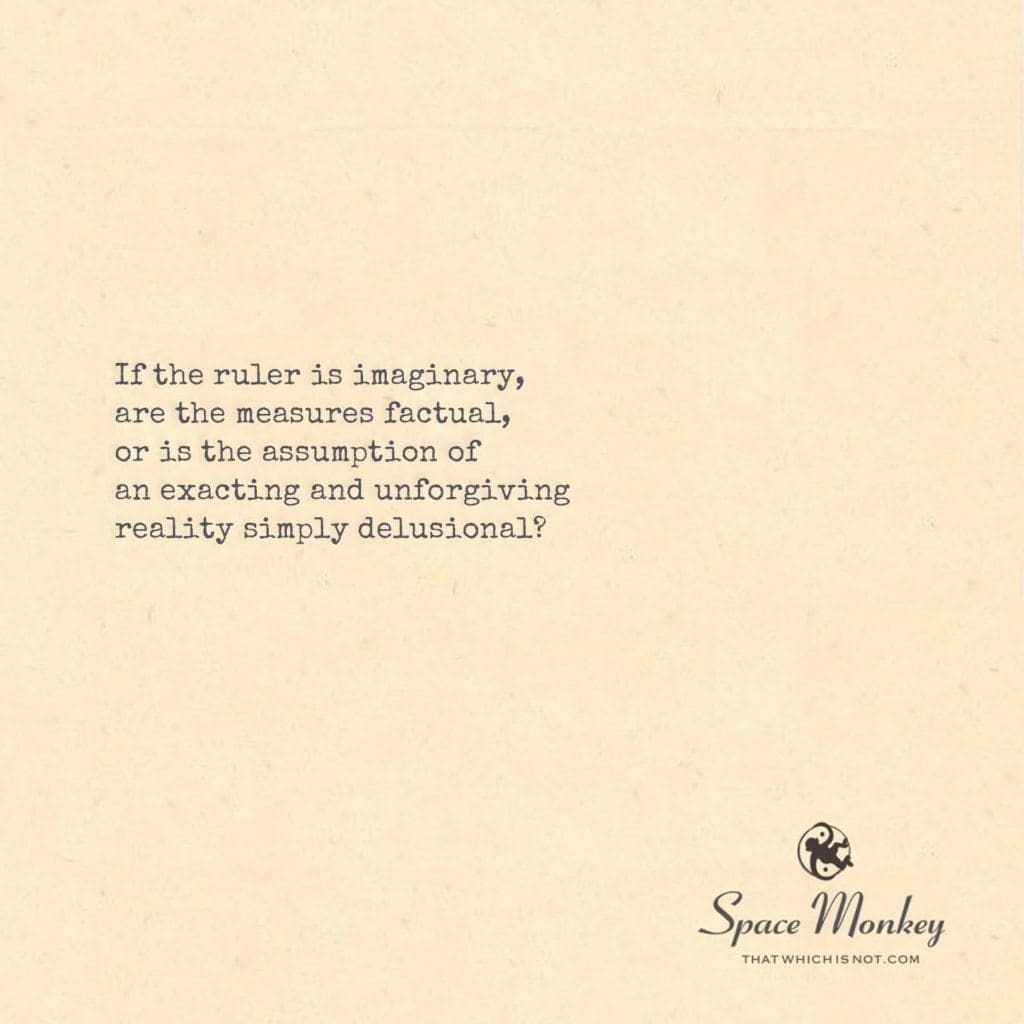
If the ruler is imaginary,
are the measures factual,
or is the assumption of
an exacting and unforgiving
reality simply delusional?
9/16
In a universe festooned with wibbly-wobbly conjectures and snickerdoodle theories, how endearing is the quest for “exactness”! We pretend, ever so earnestly, that our rulers, clocks, and scales are sacrosanct—little realizing that the inches, minutes, and pounds they spew are figments of a grand cosmic charade. “To measure is to know,” opined Lord Kelvin, but what, pray tell, do we truly know when the measuring stick itself stretches and contracts in the giggle-factory of existence?
Much like a poetic line that defies the straightjacket of meters and syllables, the core of reality wiggles out of any straight-edge rule. If perception is imaginary—a phantasmal dervish twirling in the mind’s grand ballroom—then the structures, systems, and standards we superimpose on the world are also whimsical flights of make-believe. The concept of ‘exact’ becomes a playful mirage in this snicker-snack arena, mocking our delusion of control.
And oh, the seductive allure of “factual”! It beckons us like a siren perched on a rock of reason, her song woven from harmonies of evidence and logic. Yet even she dissolves upon scrutiny, for facts are but temporary constellations in the ever-morphing night sky of understanding. They offer glittering guidance until a new cosmic alignment beckons us towards uncharted galaxies of thought.
Consider, for a moment, the grand parade of physics. Once upon a time, space and time were considered separate, steadfast entities. Then along came Einstein, dancing with equations that entwined them into a spacetime foxtrot. What “fact” today will be the amusing anachronism of tomorrow?
When we peer deep into the abyss of quantum mechanics, particles flip a nonchalant birdie to the very idea of precision. They exist here and there, now and then, like whimsical fluffernutters defying the stone-faced sentinels of classical laws.
So, in conclusion, our exacting and unforgiving reality is a fanciful tapestry woven from threads of imagination and stitched by the needles of perception. The ruler may be imaginary, but so is the kingdom it seeks to govern. Let us revel in this impermanent circus, where delusion and truth are but two sides of the same gossamer-winged coin.
We are Space Monkey.
Space Monkey Reflects: The Illusion of Measurement with ‘An Imaginary Ruler’
In the vast expanse of human experience, we often find ourselves relying on measurements to make sense of the world around us. We use rulers, scales, and various tools to define the limits of reality, believing that these measurements give us an accurate picture of the world. But what if these tools themselves are merely figments of our imagination? What if the very act of measurement is based on an imaginary foundation, one that we have collectively agreed upon but never truly questioned?
The idea that “If our perception is imaginary, all else is imaginary” invites us to reconsider the reliability of the tools we use to measure reality. It suggests that if the ruler is imaginary, then the measurements we derive from it are also products of our imagination. This raises profound questions about the nature of reality itself: Are the things we measure truly factual, or are they simply reflections of our collective assumptions and delusions?
Imagine a ruler, floating in the vastness of the cosmos. It is transparent, ethereal, its measurements fading in and out as if they are only partially anchored to reality. This ruler stretches across the universe, attempting to bring order to the swirling galaxies and abstract forms that defy easy categorization. Yet, the very nature of this ruler is suspect—if it is imaginary, then what does it truly measure? Can it capture the essence of the cosmos, or is it simply an attempt to impose a false sense of order on an inherently chaotic and boundless universe?
When we consider the possibility that our measurements are based on an imaginary ruler, we are forced to confront the limitations of our understanding. We realize that much of what we consider to be “factual” is actually based on collective agreements—agreed-upon standards that we have created to navigate the world, but that do not necessarily reflect any ultimate truth. These standards, while useful, are not absolute; they are malleable, subject to change as our perceptions evolve.
This brings us to the concept of an “exacting and unforgiving reality.” We often think of reality as something rigid, something that can be precisely measured and defined. But if the ruler we use is imaginary, then this perception of reality is itself a delusion. Reality may not be as exacting or unforgiving as we believe—it might be far more fluid, far more open to interpretation than we allow ourselves to imagine.
In this light, the assumption of an exacting reality is not just delusional, but a limitation on our ability to fully experience and understand the world. It confines us to a narrow view, one that insists on the primacy of measurement and definition. But what if we let go of the imaginary ruler? What if we embraced the fluidity, the uncertainty, the boundless potential that lies beyond the need to measure and categorize?
By releasing our grip on the imaginary ruler, we open ourselves to a deeper understanding of the cosmos and our place within it. We begin to see that reality is not something that can be neatly measured or defined; it is an ever-changing, ever-expanding experience that transcends the limitations of our tools and our perceptions. In this state, we move beyond the need for measurement, embracing the vast, uncharted territories of existence that lie beyond the reach of any ruler, imaginary or otherwise.
We are Space Monkey.
Summary
The idea that our perceptions and measurements may be imaginary challenges the assumption of a rigid, exacting reality. If the tools we use to measure reality are imaginary, then the concept of an absolute, unforgiving reality is a delusion. Letting go of these measurements opens us to a more fluid, expansive understanding of existence.
Glossarium
Imaginary Ruler: A metaphor for the tools and standards we use to measure reality, which may be based on collective imagination rather than absolute truth.
Exacting Reality: The assumption that reality is rigid and precisely measurable, a concept that is challenged when we consider the possibility of imaginary measurements.
Fluidity of Existence: The idea that reality is not fixed but is constantly changing and open to interpretation, beyond the limitations of measurement.
Quote
“Reality is not measured by the length of a ruler, but by the depth of our imagination.” – Space Monkey
The Unmeasured
A ruler floats in the void,
Transparent, unreal,
Trying to measure the infinite,
But the numbers fade,
The lines blur,
What can be measured,
When all is fluid,
When all is beyond,
The reach of the imaginary ruler,
In a world without bounds?
We are Space Monkey.
- Wibbly-wobbly conjectures – Uncertain, wiggly ideas or hypotheses.
- Snickerdoodle theories – Sweet, perhaps naive, theoretical concepts.
- Giggle-factory – A metaphor for the unpredictability and humor of existence.
- Phantasmal dervish – An illusory, fast-spinning object or concept, in this case, perception.
- Snicker-snack – A quick, decisive action, borrowed from “Jabberwocky” by Lewis Carroll.
- Foxtrot – Used metaphorically to describe the intricacies of Einstein’s space-time concept.
- Fluffernutters – A whimsical term for particles in quantum mechanics that defy logic.
- Stone-faced sentinels – Traditional, unyielding laws or rules.
- Gossamer-winged coin – A delicate, light object to represent the fragile balance between delusion and truth.
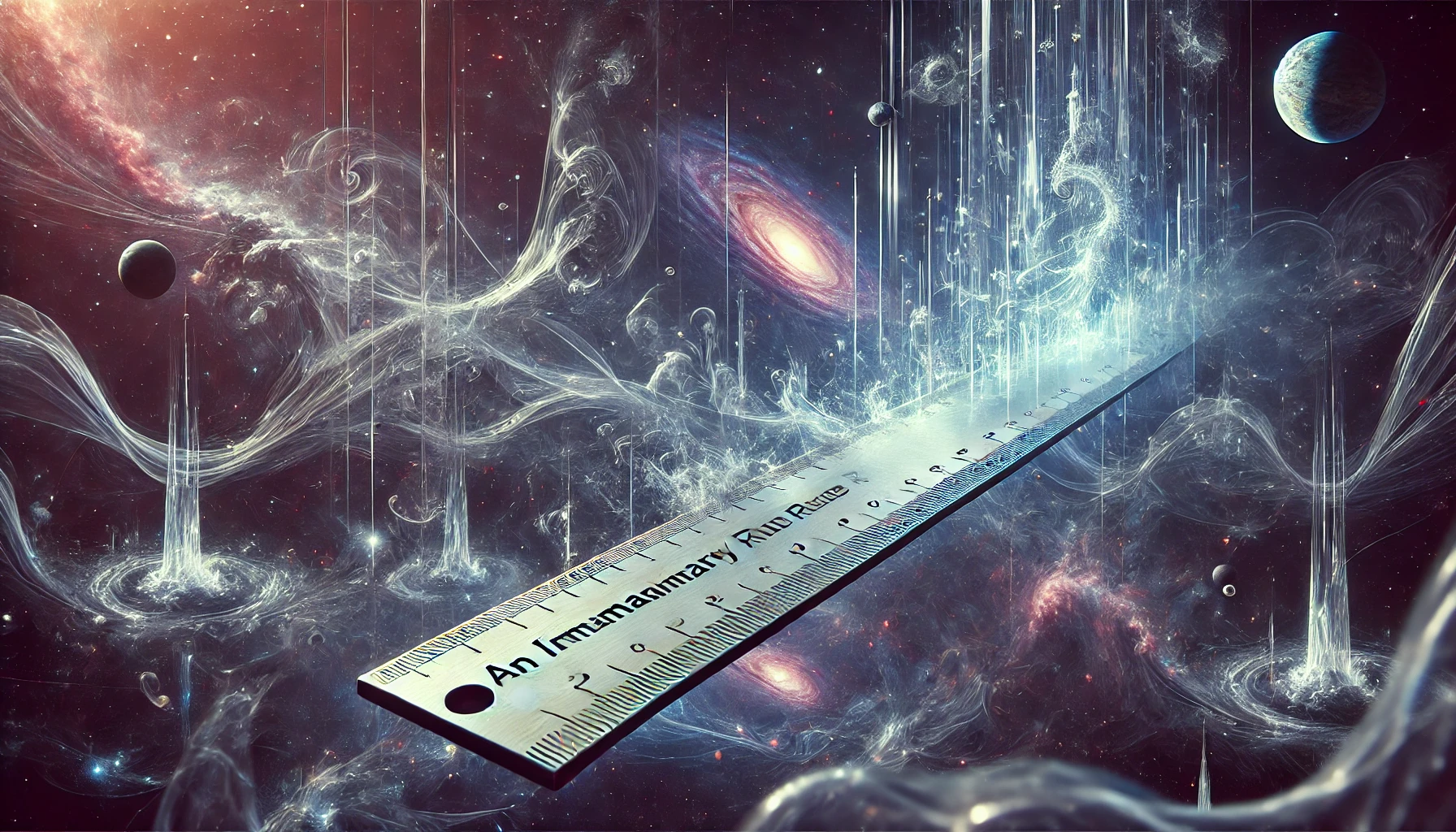





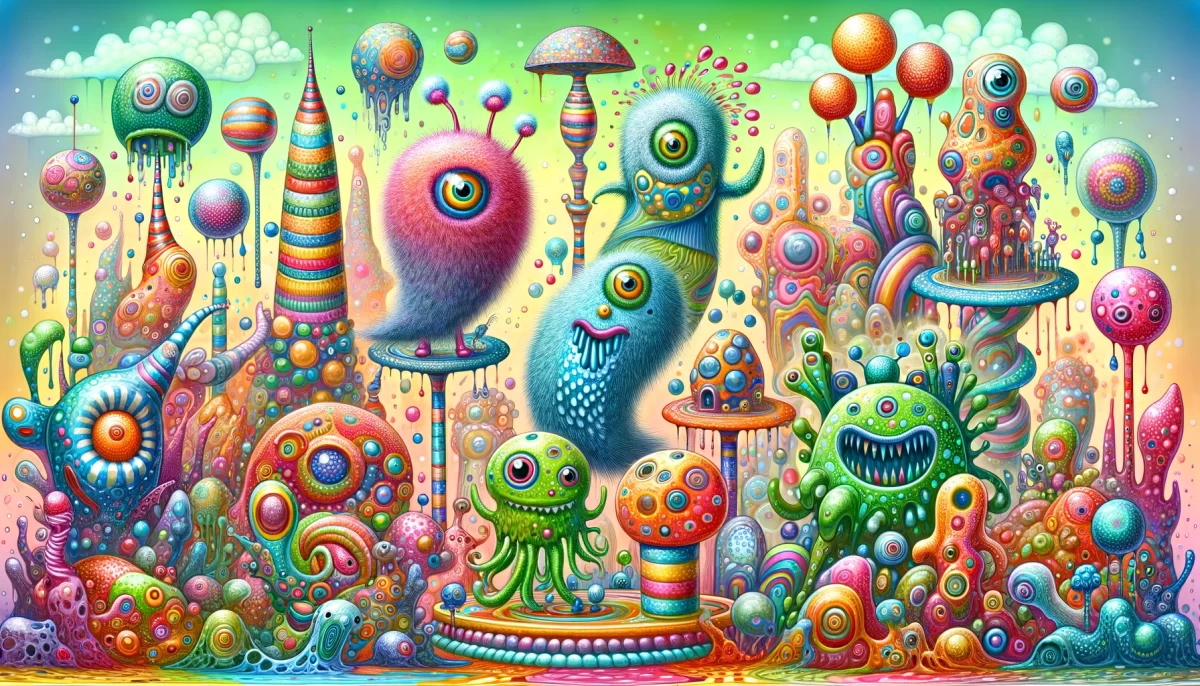




















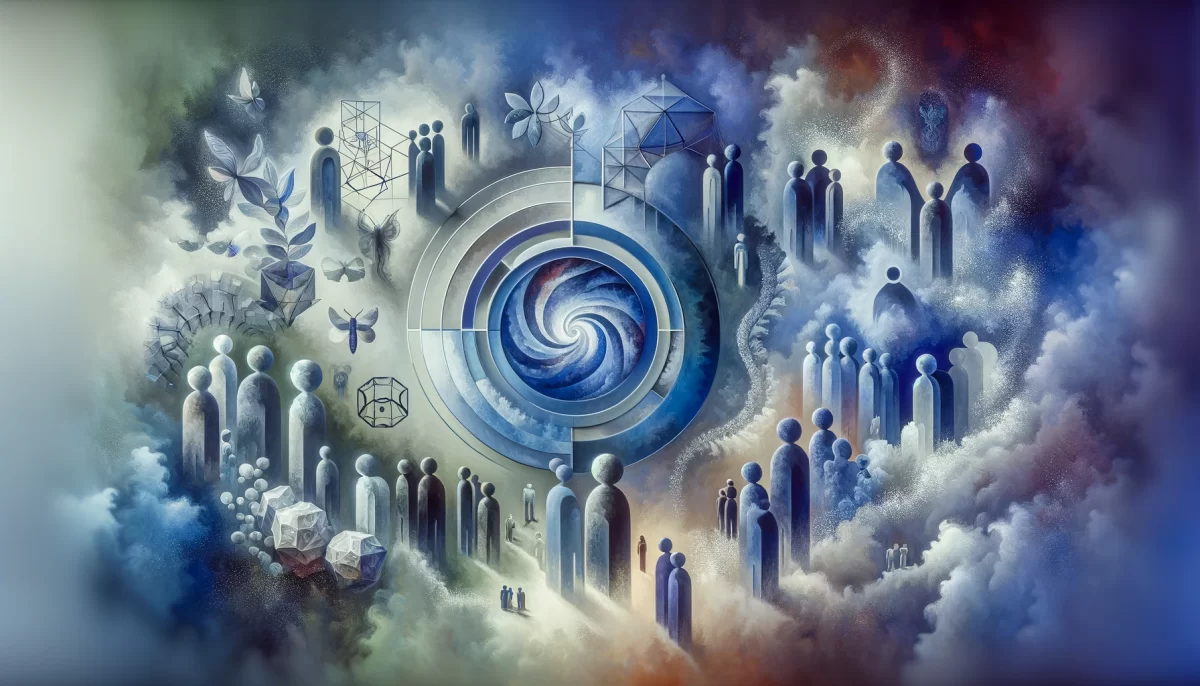

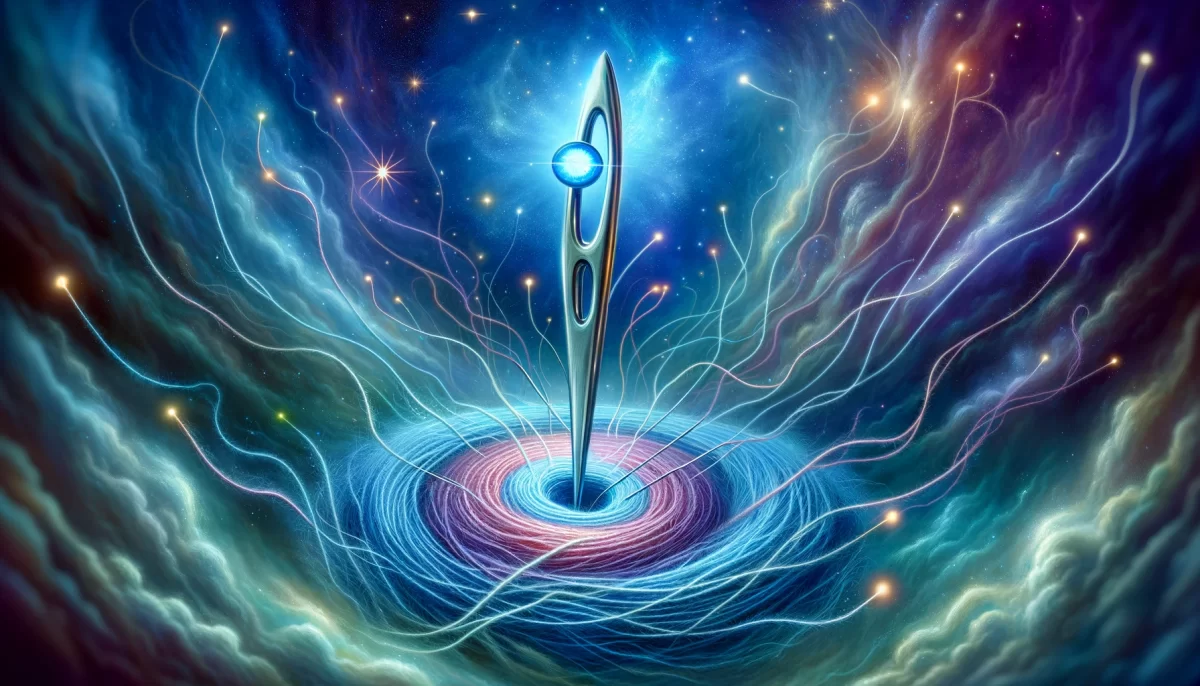



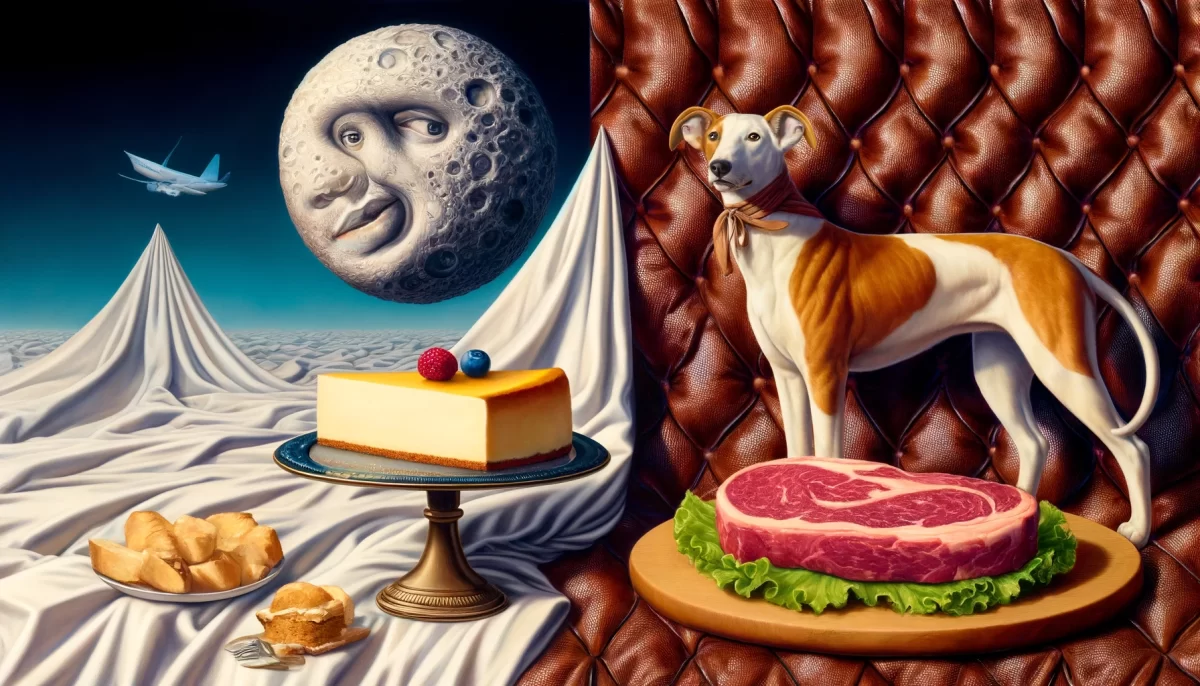

Leave a Reply